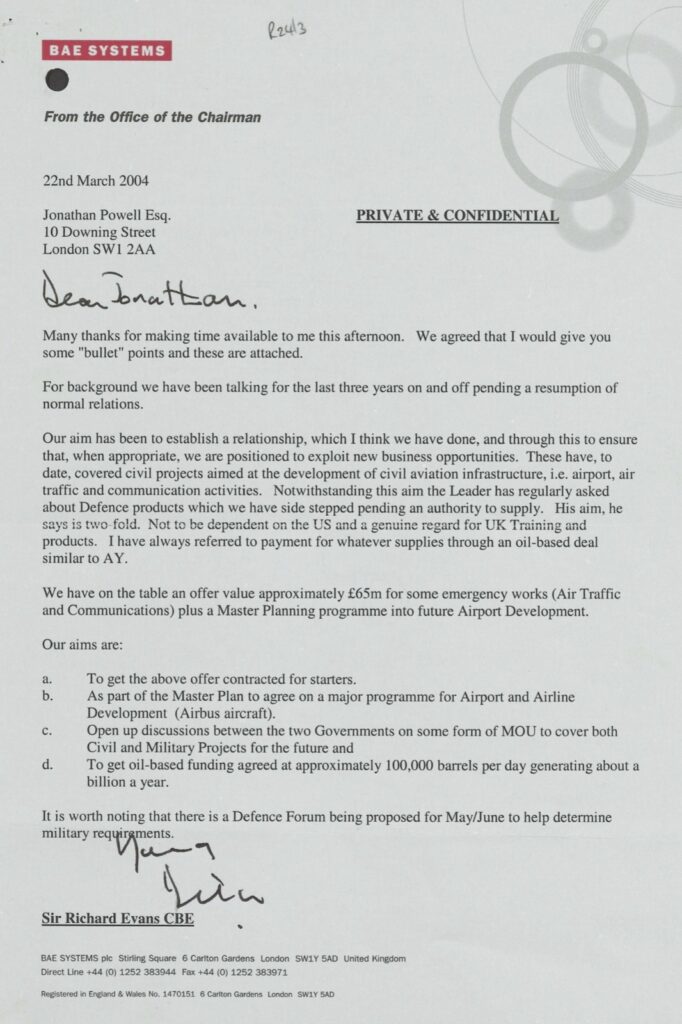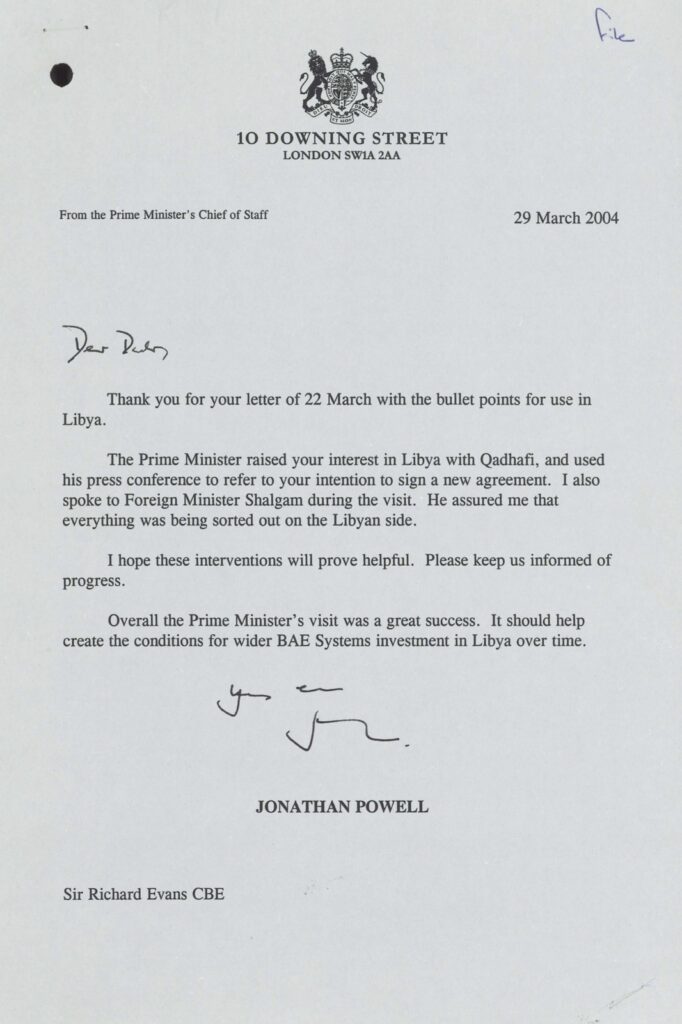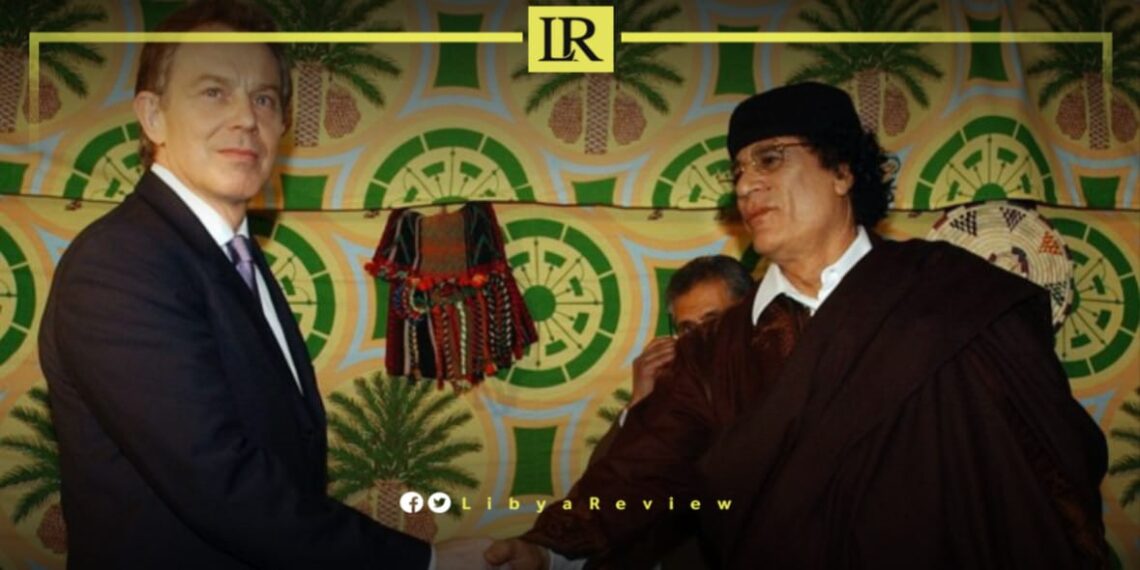Newly uncovered documents reveal that former British Prime Minister Tony Blair’s government pressured Libya’s regime, led by Muammar Gaddafi, to secure an arms deal benefiting the UK-based company, BAE Systems.
The documents, obtained by the Financial Times, include a 2004 letter from Sir Richard Evans, then-chairman of BAE Systems, urging Blair’s Chief of Staff, Jonathan Powell, to initiate talks with Libyan officials. These discussions aimed to establish a memorandum of understanding covering future civilian and military projects.
Blair personally presented these proposals to the Libyan government as part of broader efforts to enhance UK-Libya relations. One notable initiative was a £65 million contract BAE had pursued for three years, pending the resumption of normal diplomatic ties.
The documents also highlight Blair’s close relationship with Gaddafi, particularly during negotiations to lift sanctions on Libya. In 2004, the EU lifted its arms embargo on Libya, imposed in 1986 over allegations of supporting terrorism, following assurances that Libya had abandoned its weapons of mass destruction programme.
Further, MBDA, a company partly owned by BAE Systems, secured a £199 million contract in 2007 to supply anti-tank missiles and communication systems to Libya.
Blair’s visit to Libya in March 2004, where he met Gaddafi for the first time, marked a turning point in UK-Libya relations. However, his ties to the regime faced scrutiny after Gaddafi’s fall, with critics alleging Blair had prioritised business interests over ethical considerations.
The revelations shed light on the intricate and controversial dynamics of UK-Libya relations during Blair’s tenure, underscoring the enduring questions surrounding the interplay of diplomacy, commerce, and ethics.




